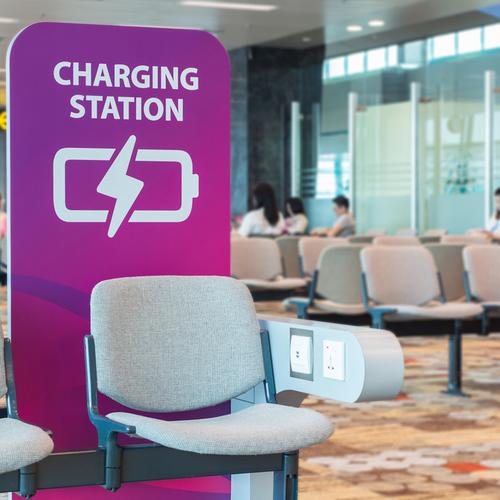Data at Risk: The New Mobile Security ThreatData at Risk: The New Mobile Security Threat
Make sure your users and colleagues are aware of this security threat that could undermine the safety of their data and enterprise data.
May 9, 2017

We have been there, cell phone is dying, and we desperately need a charge. We spot a charging station in a train station or restaurant and go over to juice up for the remainder of our day without ever thinking we just compromised all the data on the phone.
As we all become more aware of the places our data can be stolen or lost, there is yet one more to add to the list, public charging stations. These seemingly innocent lifesavers can be easily manipulated to get all the data on the phone or implant ransomware or spyware on the phone. Most malicious software only needs minutes to access the phone and get data or implant tracking software.
Charging stations are ubiquitous in airports, malls restaurants, and train stations as we are all dependent on our devices with their fleeting battery life, we often use these stations when caught with fading battery life. However, none of the security software developers or the phone manufacturers currently have a solution to this issue or a way to alert a user that a problem may exist at a charging station.
Using both the cord and the station itself presents risks to users. The cord that is used to charge the phone is also used to transmit data. Hence, the cord can be the source of hacking or implantation of a virus or other malware. This so-called "juice jacking" has been happening to unsuspecting consumers for years, but many are unaware of how their phone might have become compromised, or how their data was stolen. Some hacking uses HDMI readers that can capture every image on the phone, including visited websites such as your passwords for financial sites, etc. The readers can also access documents you might have saved on your phone. The data might be used or aggregated then sold on the black market to the highest bidder. A consumer may be hacked at a single charging station and then become a victim months later.
For corporations, these risks are increased since employees may compromise the organization and its infrastructure through an infected device. The implications can be magnified if the hackers gain access to corporate portals and sensitive client information. Few businesses warn their employees about these risks or provide battery backups, making the chances of compromise significant.
Most consumers are completely unaware of the risk of using public charging stations and cords. Experts recommend that you always use your own cord to avoid risks and carry a portable battery pack to eliminate risks altogether.
Read more about:
2017You May Also Like




